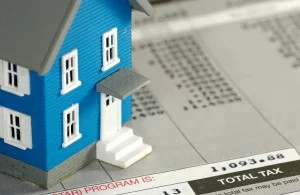Real estate
The CPA’s Role in Real Estate Tax Compliance

In any civilized society, avoiding tax-related infringement and legal battles should be of the utmost importance to law-abiding citizens. Real estate duty imposition is a critical part of property ownership and investment in many societies. The levy collected from investors and property owners is used to finance amenities for community benefits and fund infrastructural development.
In this article, we will focus on real estate tax compliance and reporting. We will also look at the responsibilities of a CPA in ensuring compliance, and the strategies to deploy to avoid defaults that may result in incurring penalties.
Real Estate Compliance and Reporting
In order not to be in breach of real estate laws, investors and property owners should do the following:
- Sustain Awareness: Keep an eye on the tiers of government on issues related to real estate.
- Property Appraisal: Understudy and take note of the methods used to assess your property for valuation and analyze them for accuracy.
- Documentation: Keep a comprehensive record of transactions and payments relating to your property. Click here to learn more about real estate record keeping or documentation.
- Submit Duty Returns: Remit your tax, ensuring strict adherence to all guidelines as provided.
- Get Expert Advice: Engage a CPA, that is, a Certified Public Accountant, for expert input in real estate matters.
Responsibilities of a CPA in Compliance
CPAs are an indispensable part of our business management obligations. Property owners need them to ensure compliance with regulatory and fiscal obligations. Let us examine their roles in brief.
Financial Auditing
They help with auditing financial records and assessing their accuracy. They also ensure compliance with GAAP (generally accepted accounting principles).
Duty Compliance
CPAs assist investors in navigating the complex terrain of tax regulations. They ensure that their clients correctly and promptly remit all levies and obligations.
Internal Oversight
They ensure the internal control mechanisms within an organization are assessed for duty optimization. CPAs can help identify vulnerabilities and propose solutions that will mitigate the risks posed.
Ethical Considerations
Ethical considerations are moral standards that tell us if what we do is right or wrong. There are codes and ethics that regulate the relationship between CPAs and their clients, whether it is a CPA in Los Angeles or anywhere in the world. Ethics such as integrity, objectivity, and confidentiality apply. These norms are prioritized to avoid conflict and protect clients’ interests.
Strategies for Avoiding Tax Penalties in Real Estate

Investors and property owners can sometimes incur penalties due to the intricacies of tax management. Implementing the strategies enumerated below will help you navigate the terrain better.
Detailed Record-Keeping
It is good practice to keep records of transactions in your real estate, such as expenditures, accruals to your property, etc. This will put you in a position to respond to tax inquiries promptly and correctly.
Information and Continuous Education
The need to be well-informed and continuously educated on the relevant codes and laws concerning your investments is paramount. Also, seeking professional advice or a CPA’s counsel on subjects relating to real estate when in doubt isn’t out of place.
Take Advantage of Depreciation
You can take advantage of depreciation to leverage getting a duty deduction over an extended period. You can enjoy substantial tax savings if you satisfy the necessary obligations, like providing documentation of depreciation, etc.
Prompt Documentation and Payments
Ensure you promptly file returns and make the correct tax remittances whenever they are due. The implication of not doing this is interest accrual and unmitigated penalties. Fulfilling all tax-related obligations counts; it is of great significance, and default is not taken lightly by regulating authorities. In the event that you missed the payment deadline, visit this website: https://abcnews.go.com/ to know what to do.
Conclusion
Real estate tax compliance is crucial for property ownership and investment in many societies. To avoid tax infringement, investors should maintain awareness, and conduct property appraisals. By maintaining a comprehensive record of transactions and payments, submitting tax returns, and seeking expert advice from CPAs, ugly issues of default can also be avoided.
CPAs play a vital role in compliance by auditing financial records, ensuring tax compliance, assessing internal control mechanisms, and maintaining ethical considerations. Investors and property owners need to stay informed on codes and regulations on levies and be detailed in their record-keeping practices.
In addition, to avoid conflicts with regulatory authorities, you can take advantage of property depreciation and ensure that duties are promptly filed, and payments made. These strategies, if correctly implemented, will help to mitigate potential penalties, ensure the welfare of investors, and give peace of mind.


















































